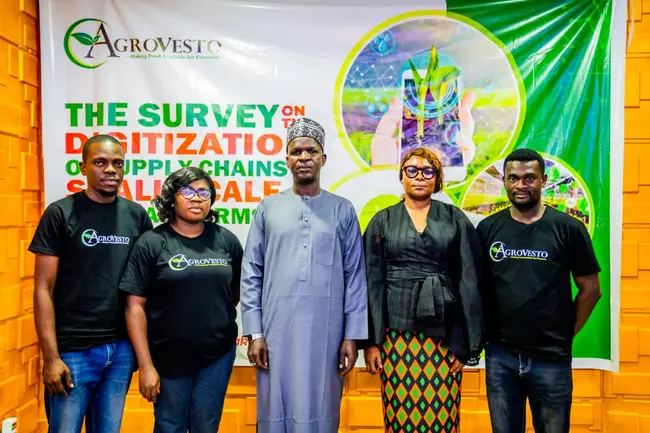The National Information Technology Development Agency (NITDA) is keen on optimisation of Nigeria’s supply chain so that small-scale farmers can meet the increasing consumer demands, enhance food quality and safety, and promote and utilise sustainable practices.
According to the Director General of NITDA, Mr Kashifu Inuwa, the transformative potential of advanced technologies such as Artificial Intelligence (AI), the Internet of Things (IoT), and blockchain can address the challenges faced by Nigeria’s farmers.
He said that these technologies can revolutionise agricultural practices and improve food security.
Inuwa made the remark at the launching of the Survey on the Digitisation of Supply-Chain in Small-Scale Nigerian Farms Project organised by AGROVESTO in conjunction with the Office for Nigeria Digital Innovation (ONDI) under NITDA, Japan International Cooperation Agency (JICA) with Federal Ministry of Agriculture and Food Security (FMAFS) as partner.
The NITDA boss who was represented by Engr. Salisu Kaka, Director of Digital Economy Department, stated that digitising the supply chain for small-scale farms offers a transformative solution to the challenges of food security in the country.
He explained that small-scale farmers face numerous challenges including limited access to technology, high production costs, limited financing, high post-harvest losses, poor market access, labour shortages, and high labour costs.
“This can be achieved through the adoption of technologies such as Artificial Intelligence (AI), which can handle time-demanding tasks using machine learning and predictive modelling; the Internet of Things (IoT), which can monitor crops and generate real-time data to inform automation and best practices; and blockchain, which can provide end-to-end traceability in supply chains with sharable data, building consumer trust and even making it easier to isolate and manage disease outbreaks in crops,” Inuwa said.
Co-founder/CEO AGROVESTO Bayo Adewoye said that 63.5 per cent of these farmers earn between N20,000 and 1N00,000 monthly during the sales season while 63 per cent take their products to the open market to sell.
He added that the project has been designed to address these challenges, and the expected outcomes include; improved farmer income by connecting farmers to wider markets through digital tools and increasing their bargaining power and sales, boosting their incomes.
Furthermore, efficient Supply Chains by digitising agricultural value chains can reduce post-harvest losses and improve the flow of goods, benefiting farmers and markets.
He said the initiative enhances digital literacy, empowers farmers with digital skills to enable them leverage technology to access information and expand their market reach.
He further explained that the next step is to rollout digitisation of access to the market which entails the design and integration of a tailored digital platform for market access. And the onboarding of cooperatives and SHEP graduates to the platform. Then monitoring and evaluation activities which includes review meetings with JICA and ONDI, webinar and knowledge sharing.





